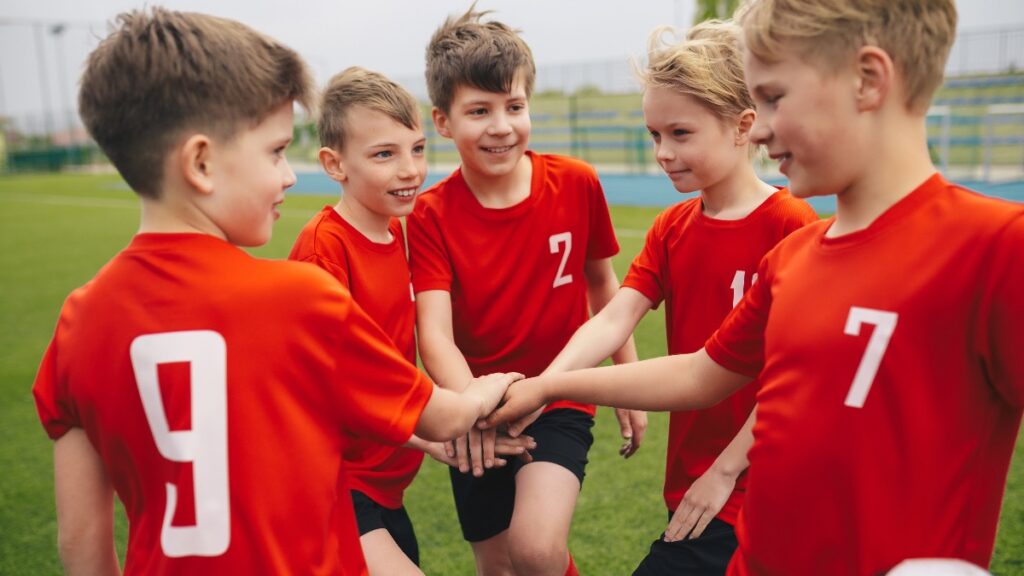As stress and anxiety levels increase among young people, team sports can act as a healthy means for releasing accumulated emotions and alleviating stress. Physical activity triggers the release of endorphins, the body’s natural mood enhancers, facilitating enhanced mental well-being. Through participation in team sports, children also acquire valuable skills in emotional regulation, handling both success and failure, which can be applicable to numerous other aspects of life.
Ways in which team sports are beneficial to teenagers
Enhanced mental concentration
Taking part in team sports requires concentration, attention to detail, and quick decision-making, enabling children to develop and strengthen their cognitive skills, such as problem-solving, spatial awareness, and strategic thinking. The mental requirements of team sports not only contribute to better athletic performance but also have the possibility to positively influence academic accomplishments as children learn to hone their mental focus and apply critical thinking skills in diverse situations.
Enhanced self-esteem
Successes and achievements in team sports can considerably raise a child’s self-esteem. A feeling of accomplishment and self-worth can be obtained from scoring a goal, making a crucial play or receiving praise from teammates and coaches. These interactions assist in nurturing a positive self-perception that can extend beyond the sports field and have a positive influence on various aspects of their lives.
Emotional control
Taking part in team sports frequently demands discipline and self-control, offering children extremely valuable lessons in governing their emotions. Through both wins and losses, they learn to deal with frustrations, control their behavior in high-pressure circumstances and handle various challenges during a game. These essential skills reach far beyond the sports field and can have a positive effect on multiple aspects of life. By developing emotional resilience and self-regulation via team sports, children acquire the tools to navigate conflicts, maintain composure and make rational decisions in diverse situations, contributing to their personal growth, relationships and overall well-being.

Development of leadership
Team sports offer children a distinctive environment to undergo friendly competition, nurturing personal growth opportunities. Through participating in team sports, children are able to develop leadership skills, assume responsibilities as team captains, exhibit individual initiative, and learn from their fellow players, all of which contribute to their personal development and character formation.
Long-Term Advantages
Recent studies show that individuals who have undergone early childhood trauma and actively take part in group sports have a significantly lower probability of being diagnosed with depression or anxiety in later life compared to their peers who did not engage in team sports. This discovery highlights the profound influence that team sports can have on mental well-being, especially for those who have encountered adversity at a young age.
The advantages of team sports go beyond mental and physical health. Academic performance is also positively affected, as regular participation in a team sport nurtures discipline, time management skills, and a sense of responsibility that can lead to better grades and overall academic success. While team sports might not be an ideal match for every child’s interests or preferences, their potential long-term benefits make exploring and finding a suitable team sport worthy of consideration for children’s comprehensive development.

